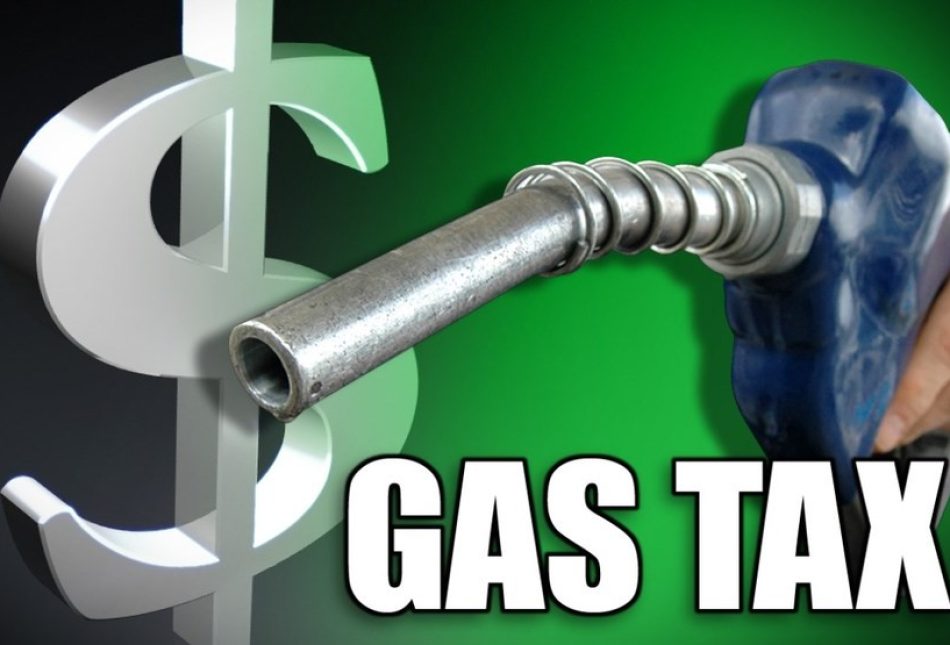No, New Mexico doesn’t need a gas tax hike

The following appeared in the 11/27/19 edition of the Las Cruces Sun-News.
![]()
As we move toward 2020 and the start of the short, 30-day legislative session, there are some who want the big-spenders in Santa Fe to raise taxes once again on hard-working New Mexicans.
In 2019, the Legislature, despite a massive surplus, passed the largest tax hike in New Mexico history. Although this was completely unnecessary, a portion of that money supposedly went to improving our roads. If that is still inadequate, there is plenty of surplus revenue sloshing around in the Roundhouse to ensure that roads across New Mexico are improved.
The following are five specific reasons not to raise the gas tax.
- It is no secret that New Mexico is in the middle of historic budget surpluses with general fund spending (thanks to record oil production) booming from $6.3 billion to nearly $8.0 billion. That’s a 27% increase in just two years. There is plenty of money available to build and repair roads, especially in Southeast New Mexico where roads have been impacted by the incredible oil and gas growth.
- The tax hikes adopted in 2019 just increased taxes with $52 million annually going to roads starting this year. That number will rise in the years to come. It would be premature to raise taxes so quickly after taxes were raised “for roads” just this past year.
- New Mexico should stop wasting $30-plus million annually on operating the Rail Runner. Ridership on the train is vanishingly small and wastes money that could otherwise be used for road maintenance. To keep spending money on this boondoggle while also calling for higher taxes is ridiculous. Transit is in decline nationwide. The sooner we realize this and stop spending money on it, the better.
- Gas taxes are “regressive.” Not only do the poor allocate a greater percentage of their incomes to paying such taxes, but low-income folks also drive older, less fuel efficient cars.
- Finally, although the current political situation in Santa Fe is unlikely to result in needed reform of New Mexico’s labor laws, the fact is that reforming the state’s Davis-Bacon “prevailing wage” law could result in cost reductions for a variety of transportation projects including roads (and schools). A 2017 fiscal analysis from the Legislature found that legislation that would simply have reduced the impact of New Mexico’s law would have saved New Mexico’s Department of Transportation between $20 million to $22 million annually based on 2017-2018 active construction projects.
New Mexico government is already bloated and the state is considered the worst run in the entire nation according to a new analysis by 24/7 Wall Street. Rather than just handing more money over to Santa Fe, it is time we expect a little better management of our tax dollars.
Building and maintaining basic infrastructure like roads is arguably the core function of government. It’s right up there with public safety. Even in the very best of economic times (thanks to national economic growth and record oil production) New Mexico state government has a poor track record of addressing those core functions (thus the 24/7 Wall Street ranking).
In particular Republicans must push back with full-throated opposition to raising taxes. Although lacking in power in Santa Fe, there’s a need to step up and provide a reasonable, limited-government alternative to the big-spending liberals in Santa Fe. They cannot yield to calls for still higher taxes whether they are sold as being for road improvements or something else.
Paul Gessing is president of New Mexico’s Rio Grande Foundation. The Rio Grande Foundation is an independent, nonpartisan, tax-exempt research and educational organization dedicated to promoting prosperity for New Mexico based on principles of limited government, economic freedom and individual responsibility
